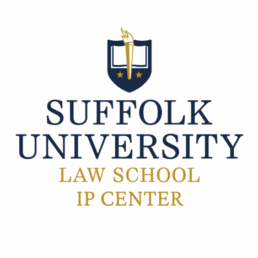Mosaic IP Law and Policy Roundtable Conference
The Mosaic IP Law and Policy Roundtable connects IP scholars with political activists, practicing attorneys, community organizers, and policy makers to produce activist scholarship, to collaborate on various IP Empowerment policy initiatives and projects, and to otherwise help to shape and effectuate a progressive and contemporary IP socio-legal agenda.
Program News & Updates
7/8/2025 – Thank you to all who joined us for the 2024 Mosaic Conference! Missed us? Check out the full conference event archive here.
2025 Conference Details
Co-hosted by Suffolk University Law School
Date: October 24-25, 2025
Time: 8:30 am – 5:00 pm EDT
Location (In-person & Virtual): Suffolk University Law School, Boston, MA
Theme: IP and the Fabric of Nations
About the Conference
Each IP Mosaic Conference is typically organized around a specific IP social justice legal issue, policy, or socio-economic challenge. Representative conference themes include equitable access to health, medicines, knowledge, and information; socially beneficial application of information technology and related advances to IP development and dissemination; legal protection for traditional and indigenous knowledge and expression; and promoting IP awareness, education, and entrepreneurial and socio-political empowerment in marginalized communities. The conference format is principally comprised of paper or project presentation sessions and plenary panel discussions. In addition, keynote presentations and “incubator project” and work in progress sessions are also mainstays of the conference.
Co-hosted by Suffolk University Law School

2025 Theme | IP and the Fabric of Nations
The IP Mosaic Conference is a unique convening of a diverse collective of academic scholars, policy leaders, and activists who meet to consider and critique IP protection. In the conference’s 11th year, the Theme “IP and the Fabric of Nations” seeks to examine narratives and stories about the role that IP plays in knitting communities, peoples and nations together. We are looking for critical examinations of the stories that are told about IP in enabling national excellence in industrial growth, promoting socio-economic empowerment, and solving development challenges, e.g. collaborative approaches to IP production and use across borders such as climate technology cooperation and technology platforms like WIPO Green, or IP as a means of negotiating the international expansion of cultural products such as K-Pop and K-Drama. We are looking for critical examinations of how IP enables storytales of national identity and culture, such as the role of IP in Disney’s capture of European American fairy tales or the complex adoption of the Haka into New Zealand’s sports identity. We seek contributions that allow us to examine how the stories that we tell about IP and the narratives around IP enable inclusion and belonging in national identity-building projects, especially for marginalized peoples and communities.
Recent News & Updates
9/1/2023 – Thank you to all our sponsors, speakers, and attendees for their support of the 2022 conference! View the details from last year’s event here.
Past Conferences
7th Annual IP Mosaic Conference 2021
6th Annual IP Mosaic Conference 2020
Find the full Mosaic conference event archive here.
Program Agenda
*Subject to change
Friday, October 24
8:30 – 9:00 am EDT
12:30 – 1:00 pm GMT
Introductions & Welcome
Dalindyebo Shabalala, Academic Co-Director and Professor of Law, Suffolk IP Center
Lateef Mtima, Professor of Law, Howard University School of Law & Founder and Director, Institute for Intellectual Property and Social Justice (IIPSJ)
9:00 – 10:30 am EDT
1:00 – 2:30 pm GMT
International IP Panel
Moderator: Metka Potočnik, Senior Lecturer in Law, University of Wolverhampton, Law School and Director of The F-List for Music CIC
Presenters:
Valentine Goddard, AI Impact Alliance (AIIA)
Aman Gebru, Assistant Professor, University of Houston Law Center, “Truthmarks”
Faith O. Majekolagbe, Assistant Professor, University of Alberta Faculty of Law, “Contract Override and the Vanishing User Rights in Canadian Copyright Law”
10:30 – 11:00 am EDT
2:30 – 3:00 pm GMT
Break
11:00 am – 12:45 pm EDT
3:00 – 4:45 pm GMT
Panel Session: Claiming Space: Pushing the Boundaries of IP
Moderator: Betsy Rosenblatt (she/her), Professor of Law and Associate Dean of Research and Faculty Development, Case Western Reserve University Law School
Presenters:
Renee Robinson, PhD Candidate, Paris I Panthéon-Sorbonne in the School of Law and Institut Français de la Mode (IFM), “An à la mode TWAIL Perspective on International law and (Intellectual) Property in Tangible and Intangible Cultural Heritage”
Margaret Chon, Donald and Lynda Horowitz Endowed Chair for the Pursuit of Justice, Seattle University School of Law, “Protecting Progress: Copyright’s Common Law and Libraries”
Janet Freilich, Professor of Law, Boston University School of Law “Unethical Patents”
Michael Goodyear, Associate Professor, New York Law School, “Rethinking Authenticity”
12:45 – 2:00 pm EDT
4:45 – 6:00 pm GMT
Lunch Break
2:00 – 3:30 pm EDT
6:00 – 7:30 pm GMT
Practitioner and Policymaker Panel: Reflections on IP and Social Justice
Moderator: Lateef Mtima, Professor, Howard University Law School, Executive Director, Institute for Intellectual Property and Social Justice
Presenters:
Kristina Liburd, Senior Partner, Duncan Bergman Mandell “From Platform to Policy: Creator Ownership and the New Cultural Economy”
Nancy Johnson, Northeastern University Law and Policy Fellow “A national Intellectual Property institution led by a homogeneous “trio of Roberts” cannot produce the most beneficial patent system for a society of diverse inventors”
John R. Whitman, Ph.D., Principal, Creative Prisons Project, Chicago, “Turning prisons into expressive sources of creativity, worldwide”
David Newhoff, Writer & Policy Advocate, Adastra Creative, “Rescuing democracy from democratization”
3:30 – 4:00 pm EDT
7:30 – 8:00 pm GMT
Break
4:00 – 5:00 pm EDT
8:00 – 9:00 pm GMT
Plenary Session: Keynote Speaker and Q&A
Moderators:
Dalindyebo Shabalala, Academic Co-Director and Professor of Law, Suffolk IP Center
Lateef Mtima, Professor of Law, Howard University School of Law & Founder and Director, Institute for Intellectual Property and Social Justice (IIPSJ)
Panelist:
Sue Noe, Senior Staff Attorney, Native American Rights Fund
5:00 – 7:00 pm EDT
Reception & HAPPY HOUR for in-person attendees
9:00 – 10:30 am EDT
1:00 – 2:30 pm GMT
Panel Session: Competition and Collaboration – IP Communities across Borders
Moderator: Dalindyebo Shabalala, Academic Co-Director and Professor of Law, Suffolk IP Center
Presenters:
Murtaza Mohiqi, Assistant Professor, Department of Law, University of Agder, Norway, Gagandeep Kaur, Associate Professor, School of Law, UPES Dehradun, India, Mohammad Mustafa Mohiqi, Ph.D., Private Law, Independent Researcher, “Multicultural AI in IP Legal Tech”
Shreya Goswami, Assistant Professor and PhD Scholar, School of Law GD Goenka University, “From Labour to Personality: Reassessing Locke and Hegel in the Age of New Copyright”
Kenneth SSemiyingo (MPhil Student) and Doreen Adoma Agyei (Lecturer), Kwame Nkrumah University of Science and Technology, “Uganda’s Copyright and Neighbouring Rights Law and The Protection of Indigenous Music: A Study of its Effectiveness and Limitations”
Oona Sääskilahti, LLM Candidate, Kings College London, “Kalevala as an example of an appropriated work and the long-lasting harm the IP system’s inadequacy to recognise collective and cumulative creativity can cause”
10:30 – 11:00 am EDT
2:30 – 3:00 pm GMT
Break
11:00 am – 12:00 pm EDT
3:00 – 4:00 pm GMT
Panel Session: New Matters, New Rights, New Rightsholders, Part II
Moderator: Rebecca Curtin, Professor of Law; Academic Co-Director of the Suffolk Law IP Center
Presenters:
Xinmeng Li, PhD Candidate, Renmin University of China, “Fair Use, Fair Access, and Generative AI: A U.S.-China Comparison”
Joseph Coppola, Lecturer, UC Berkeley, “Are Black Athletes for Sale? Revisiting Digital Doppelgangers in Video Games”
Darrell Mottley, Assistant Clinical Professor of Law and Faculty Director of the Intellectual Property and Entrepreneurship Clinic (IPEC), Suffolk University Law School, “Metaphysical Quandary of Synthetic Media”
12:00 – 1:00 pm EDT
4:00 – 5:00 pm GMT
Lunchtime – Panel Session: Strategy Session and Prospects
Moderator: Lateef Mtima, Professor of Law, Howard University School of Law & Founder and Director, Institute for Intellectual Property and Social Justice (IIPSJ)
Presenters:
Full Table Discussion
Thank you to our Conference Planning Committee!
Conference Planning Committee
Rebecca Curtin, Suffolk University Law School Dalindyebo Shabalala, Suffolk University Law School
Tuneen Chisolm, Howard University School of Law Metka Potocnik, University of Wolverhampton, Law School
Betsy Rosenblatt, Case Western Reserve University Law School Kara Swanson, Northeastern University School of Law
Lateef Mtima, Howard University School of Law
Since 2014, IIPSJ has sponsored the IP Mosaic Conference. Through the IP Mosaic, IIPSJ collaborates with a law school host to provide a venue in which to explore the social ordering function of IP protection in the total political economy, particularly the law’s social justice obligations in promoting human rights and actualization, cultural and technological progress, and self-determination and nation-building.
The IP Mosaic Conference was established to bring together scholars, law and policy makers, and social activists of diverse and multicultural backgrounds and perspectives to explore progressive, social justice-oriented ideas in intellectual property law, policy, and social activism. Beginning in the late twentieth century, digital information technology and other innovations sparked a paradigm shift in scholarly assessment of the social ordering function of IP protection, exposing the need to critically examine the law’s social justice obligations in promoting human rights, self-determination, cultural progress, and nation-building and evolution. IP law and policy makers traditionally value scholarly analyses in their development and interpretation of IP protection. Progressive, social justice-oriented IP scholarship, especially when infused with the experience and insights of policy makers and social activists, can provide the doctrinal basis for shaping a more socially responsible IP legal regime.




